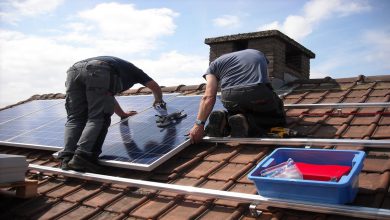
Purchasing a home is a fundamental step in achieving the American Dream. But what if we’ve all been misled over time? What if it isn’t the wisest financial decision you can make? Believe it or not, there is a compelling case to be made against homeownership.
Homeownership Might be Costing You
For middle- and upper-class Americans, life in America is fairly well-planned. You finish high school, go to college, get a good job with plenty of career opportunities, marry, and buy a house. And, until recently, that final step was always assumed/taken for granted. However, a closer examination of the topic reveals that homeownership isn’t the best option for someone looking to maximize their finances over 10, 20, or even 50 years.
To put it succinctly, homeownership is costly. Millennials have been forced to confront this issue head-on, whereas previous generations swept it under the rug. A whopping 63 percent of them have regrets about purchasing a home, with hidden costs being the leading cause of their dissatisfaction.
In a market like the one we’re in right now, it’s easy to believe that owning a home exposes you to the massive upside. In some ways, it does. Nationally, home values have increased by 14.5 percent in the last year. In some markets, the figure is closer to 25 to 30%.
So, in the short term, homeownership appears to be an obvious way to improve your finances. However, when you zoom out and look at homeownership over many decades, the picture becomes less clear.
Historically, homes have appreciated at a rate ranging from 3.5 percent to 3.8 percent on average. That’s not so bad until you consider that the average annual inflation rate (historically) hovers around 3%.
As a result, in most years, the value of a home simply keeps pace with inflation. As a result, it serves as a financial safe deposit box (at best). But we haven’t even gotten started on the long list of expenses that come with owning a home.
The true costs of owning a home are frequently overlooked. They are as follows:
- Repairs and maintenance. According to the 1 Percent Rule, annual home maintenance costs equal one percent of the home’s purchase price (on average). As a result, if you buy a $400,000 home, maintenance and repairs will cost you around $4,000 per year.
- Interest on a mortgage. The majority of your monthly payment in the early days of homeownership is forked over in the form of interest. Only a small portion of the payments are used to reduce the loan balance. (If you stay in a house for less than seven years, as most people do, you won’t build much equity.) And you’ll almost certainly pay tens of thousands of dollars in mortgage interest over the life of the loan (maybe even a six-figure sum).
- Taxation on real estate. Property taxes will add several thousand dollars to your annual expenses. It could even be $1,000 or more per month in some markets. If you’re renting, that’s money you don’t owe.
- Moving expenses. When you sell a home and buy another, you must pay a 6% commission on the sale price. Not only that, but closing costs and fees eat away at your equity.
- This isn’t to say that owning a home is always a bad financial decision or that you’re stupid for wanting to buy your own plot of land. (After all, they’re not making any more!) However, as best-selling author Ramit Sethi points out, you must consider it critically.
“If you run the numbers like I did, you might discover that buying makes no financial sense for where you live,” Sethi says. “Are there any other reasons to purchase?” Without a doubt. Perhaps you want to buy because you want to tear down that wall. Perhaps you want to buy it because you want your children to attend a specific school. Fine. However, run the numbers.”
When it comes to the most important purchase of your life, you want to do the math and figure out what kind of return you’ll get over the next 20 to 30 years. If you don’t consider all of your options, it’s possible that owning a home will be a bad investment for you and your family.
Better Ways to Spend Your Money
If you do decide to avoid homeownership, make sure you’re being wise with the money you’d have spent on a house. To make this decision work, you must intelligently leverage this money. It should be invested in such a way that it outperforms inflation while also providing some upside.
Traditional investments such as 401(k)s, IRAs, mutual funds, and cash-flowing assets are always excellent choices.


